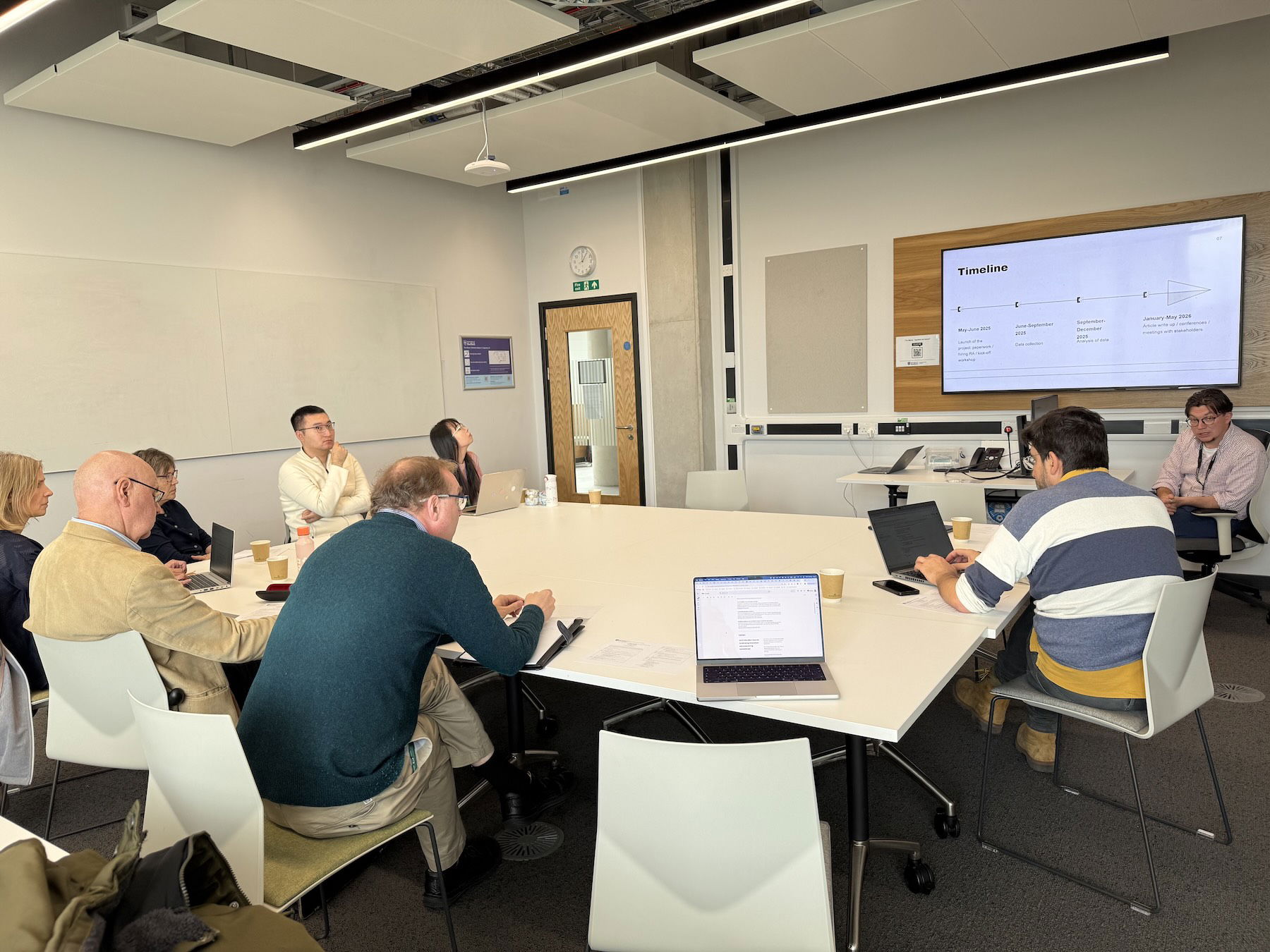Polarities

UKRI Network Plus 'Shifting Global Polarities: Russia, China, and Eurasia in Transitions
Precious Chatterje-Doody, The Open University (Primary Investigator)
Maxime Audinet, Centre for interdisciplinary media analysis and research, Paris-Pantheon Assas University (Co-Investigator)
Daniel Stockemer, Ottawa University (Co-Investigator)
Mentors: Stephen Hutchings and Vera Tolz (The University of Manchester)
Title: War and Order: Russian Communications in the Global South
Abstract: This project investigates Russia’s online messaging about the Russia-Ukraine war in global contexts within what the Russian regime identifies at the ‘world majority’ beyond the ‘West’. It speaks to issues of Orders and Interactions within the Culture, Media and Resistance in a Polarising World theme, and will provide scholars, diplomats and communications professionals with evidence about what, how and why Russian messaging resonates overseas.
We will apply computational methods to interrogate Russian online messaging towards audiences in two BRICS-member ‘rising powers’, with openness to, and increased diplomatic and media attention from, Russia: South Africa and India.
First, we use lexicometric, textual and semantic analysis of official online outputs to establish Russia’s dominant strategic narratives about the war, using critical discourse analysis to typologise ‘typical’ discourses foreach country case. Second, we use a survey experiment to expose survey participants to ‘typical’ Russian messaging or control messaging. We then measure their feelings towards Russia to establish the relative effectiveness of Russian communications across the cases and across gender, age, and political interest. Finally, we complement our experimental audience research with qualitative analysis of actual audiences’ comments on Russian social media postings, to establish reasons behind audience reactions.
PUBLICATIONS
Precious Chatterje-Doody and Maxime Audinet (2025). RT India: how the Kremlin is spreading its 'west vs the rest' narrative to a global audience. The Conversation https://doi.org/10.64628/AB.76cjh7k69
Precious Chatterje-Doody and Maxime Audinet have published their article on the launch of RT India and its role in pushing the Kremlin's "west v the rest" narrative.
Polarities Funded Fellowships
Name: Dr Adelaide McGinity-Peebles (Lecturer in Film and Television Studies, University of Exeter)
Title: Russian Arctic Media: Contemporary Indigenous Media Advocacy in the Russophone Far North
Tutor: Vera Tolz
The Arctic is of key strategic importance to Russia. The region already represents one fifth of the country’s GDP and the melting ice caused by climate change has opened up possibilities for hydrocarbon extraction and the development of the Northern Sea Route, both of which significantly strengthen the country’s power on the global stage. These policies come into direct conflict with the heritages and cultures of the 250,000 Indigenous peoples that are the custodians of Russia’s Northern lands. Of course, governmental and corporate designs on Indigenous lands are centuries-long global phenomena. Recent scholarship has examined how Indigenous peoples have increasingly turned to the media industries to promote their heritages and communities in the wake of colonialism, extractivist policies, and climate change. To date, however, scholarship on Arctic Indigenous media has largely focused on the Indigenous media boom and activism in non-Russian Arctic states.
This project seeks to address this important scholarly lacuna. It investigates how Russian Arctic Indigenous peoples use media (including platforms like Vkontakte, Telegram, Instagram and TikTok, as well as visual art and film) to advocate on behalf of their lands and peoples in the wake of the existential threats of Russian ethnonationalism, industrial pollution, and climate change. Russian Arctic Media more broadly demonstrates how audiovisual media are powerful tools for challenging pervasive stereotypes, preconceptions and harmful narratives of Indigenous communities that have persisted for centuries. In so doing, this project clearly aligns with the core objectives of the (Mis)Translating Deceit project in its focus on charting misleading narratives and disinformation from the 19th century to the Cold War up to the present day.
Polarities Funded Projects:
Name: Ilya Yablokov
Co-I: Dani Madrid-Morales
Title: Russo-Chinese narrative alignment in external propoganda channels
Mentors: Stephen Hutchings, Vera Tolz (Manchester)
This pilot project examines the convergence (or lack thereof) of narratives between Russian and Chinese state-sponsored media, focusing on geopolitical tensions and resistance to Western hegemonic discourse. It contributes to understanding the evolving dynamics of Sino-Russian relations and their broader significance for international order, aligning with UKRI’s thematic focus on media, culture, and power in a polarising world. Following the 2022 Putin-Xi joint statement declaring a “partnership without limits,” this research investigates the extent to which both nations’ flagship propaganda channels— Russia's RT and China's CGTN—align their messaging on two crucial topics for these states: Western sanctions against Russia and US-China trade relations. Employing a mixed-methods approach, the project integrates computational techniques such as natural language processing and multimodal discourse analysis to identify thematic overlaps and narrative structures in a two-year corpus of English-language content. The project aims to map key areas of alignment and explore multimodal propaganda strategies.
-----------------
Name: Vaclav Stetka
Co-I: Fanni Toth
Title: Unpacking the Impact of Russian Disinformation in Eastern Europe: A comparative study of Poland, Romania and Serbia
Mentor: Stephen Hutchings (Manchester)
This project aims to investigate the multifaceted impacts of Russian disinformation in Eastern Europe, a region that has been increasingly targeted by Kremlin’s propaganda in recent years, whilst simultaneously experiencing a steep rise of polarization, far-right nationalism and illiberalism. Focusing empirically on Poland, Romania, and Serbia, the research will step beyond conventional approaches to Russian disinformation by examining both their first-order effects—such as beliefs in specific pro-Russian narratives and conspiracy theories—and second-order effects, including the erosion of trust in institutions and societal polarization. Utilizing a representative survey with an experiment component as its primary research method, the study will analyse the connections between citizens' susceptibility to disinformation, trust in media and political institutions, information habits, cultural and political attitudes, as well as experiences with and impact of counter-disinformation measures such as fact-checking. The design of the survey and hypothesis formation will be informed by insights from focus groups, which will also offer a deeper and more nuanced context for the interpretation of the survey data. With its strong regional focus and attention to cultural and media dynamics that underpin both susceptibility and resilience to disinformation, the project directly aligns with the Polarities network’s priority theme.
EVENTS
28th May 2025: Stephen Hutchings, Yiqing Chen, Sabina Mihelj, Vera Tolz, and Weizhou Wang took part in the workshop 'Russo-Chinese Narrative Alignment in External Propaganda Chanels' at the Disinformation Research Centre, the University of Sheffield. The workshop launched Drs. Dani Madrid-Morales and Ilya Yablokov's 'Russo-Chinese Narrative Alignment' project that is funded by the UKRI Network Plus initiative.
